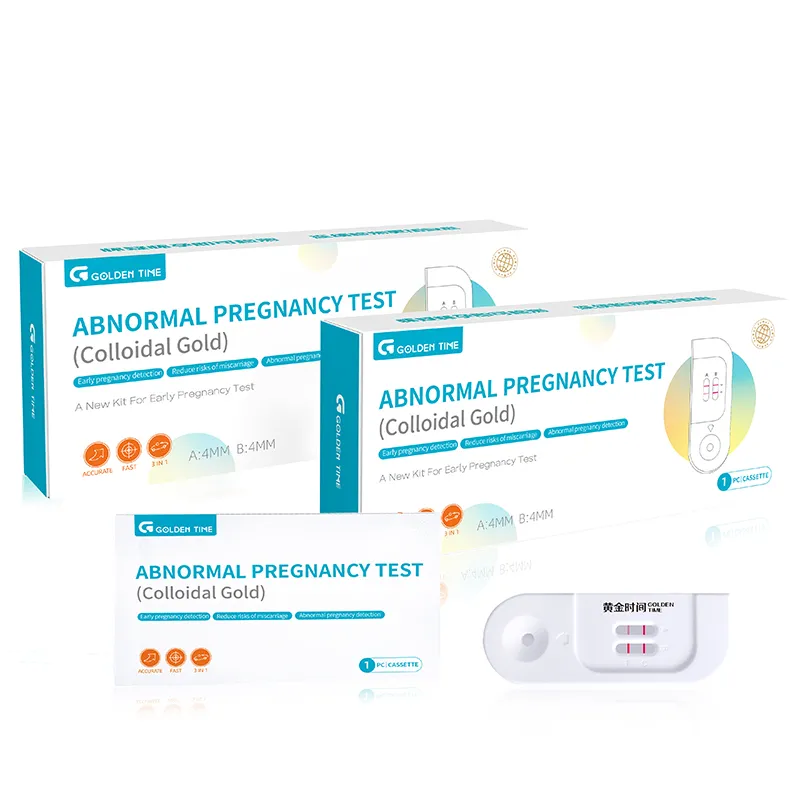Jan . 16, 2025 02:26 Back to list
malaria pf pan rapid diagnostic test kit
In the ever-evolving landscape of healthcare, advancements in diagnostic tools such as malaria test kits play a crucial role in combating the disease. These kits, designed for rapid and accurate detection, are essential for timely treatment and prevention of malaria, saving countless lives worldwide.
Furthermore, recent innovations in malaria test kits showcase increased sensitivity, especially in detecting low-density infections that were previously challenging to identify. Malaria experts advocate for the adoption of these advanced kits, affirming their role in reducing false negatives and ensuring comprehensive malaria surveillance. The continuous improvement in technology not only augments the accuracy of diagnoses but also fosters trust among healthcare providers and patients alike. Educating communities about the availability and benefits of malaria test kits further strengthens their trust in such healthcare advancements. Awareness campaigns led by health authorities often spotlight real-life success stories, illustrating instances where early detection through these kits has successfully led to effective treatment and recovery. This narrative serves to instill confidence and encourage widespread adoption of the kits, highlighting the pivotal role of education in the fight against malaria. In terms of expertise, manufacturers of these kits work closely with healthcare experts and researchers to fine-tune their products, ensuring they meet the diverse needs of different communities. The collaborative efforts entail continuous field assessments and feedback integration, proving an ongoing commitment to excellence and effectiveness. This relationship between manufacturers and healthcare experts reinforces the credibility and authority of the kits in the global health marketplace. Overall, maintaining a focus on experience, expertise, authoritativeness, and trustworthiness is fundamental to the ongoing success and adoption of malaria test kits. In a world striving to eliminate malaria, these kits are not just a diagnostic tool; they’re a beacon of hope, paving the way towards a healthier future.


Furthermore, recent innovations in malaria test kits showcase increased sensitivity, especially in detecting low-density infections that were previously challenging to identify. Malaria experts advocate for the adoption of these advanced kits, affirming their role in reducing false negatives and ensuring comprehensive malaria surveillance. The continuous improvement in technology not only augments the accuracy of diagnoses but also fosters trust among healthcare providers and patients alike. Educating communities about the availability and benefits of malaria test kits further strengthens their trust in such healthcare advancements. Awareness campaigns led by health authorities often spotlight real-life success stories, illustrating instances where early detection through these kits has successfully led to effective treatment and recovery. This narrative serves to instill confidence and encourage widespread adoption of the kits, highlighting the pivotal role of education in the fight against malaria. In terms of expertise, manufacturers of these kits work closely with healthcare experts and researchers to fine-tune their products, ensuring they meet the diverse needs of different communities. The collaborative efforts entail continuous field assessments and feedback integration, proving an ongoing commitment to excellence and effectiveness. This relationship between manufacturers and healthcare experts reinforces the credibility and authority of the kits in the global health marketplace. Overall, maintaining a focus on experience, expertise, authoritativeness, and trustworthiness is fundamental to the ongoing success and adoption of malaria test kits. In a world striving to eliminate malaria, these kits are not just a diagnostic tool; they’re a beacon of hope, paving the way towards a healthier future.
Latest news
-
Highly Accurate hCG Pregnancy Test Strips - 5 Min Results
NewsAug.02,2025
-
Premium Empty ABS Plastic Cassettes: Durable & Lightweight Storage
NewsAug.01,2025
-
Accurate Cocaine (Coc) Rapid Test Kit | Fast & Reliable Detection
NewsJul.31,2025
-
Accurate HCG Pregnancy Test Strips | Fast Home Use Kit
NewsJul.31,2025
-
Reliable Early Pregnancy Test Kit Supplier - Multi Plastic Cassette Options
NewsJul.30,2025
-
Transferrin Rapid Test Cassette – Reliable Tumor Marker Detection
NewsJul.29,2025

